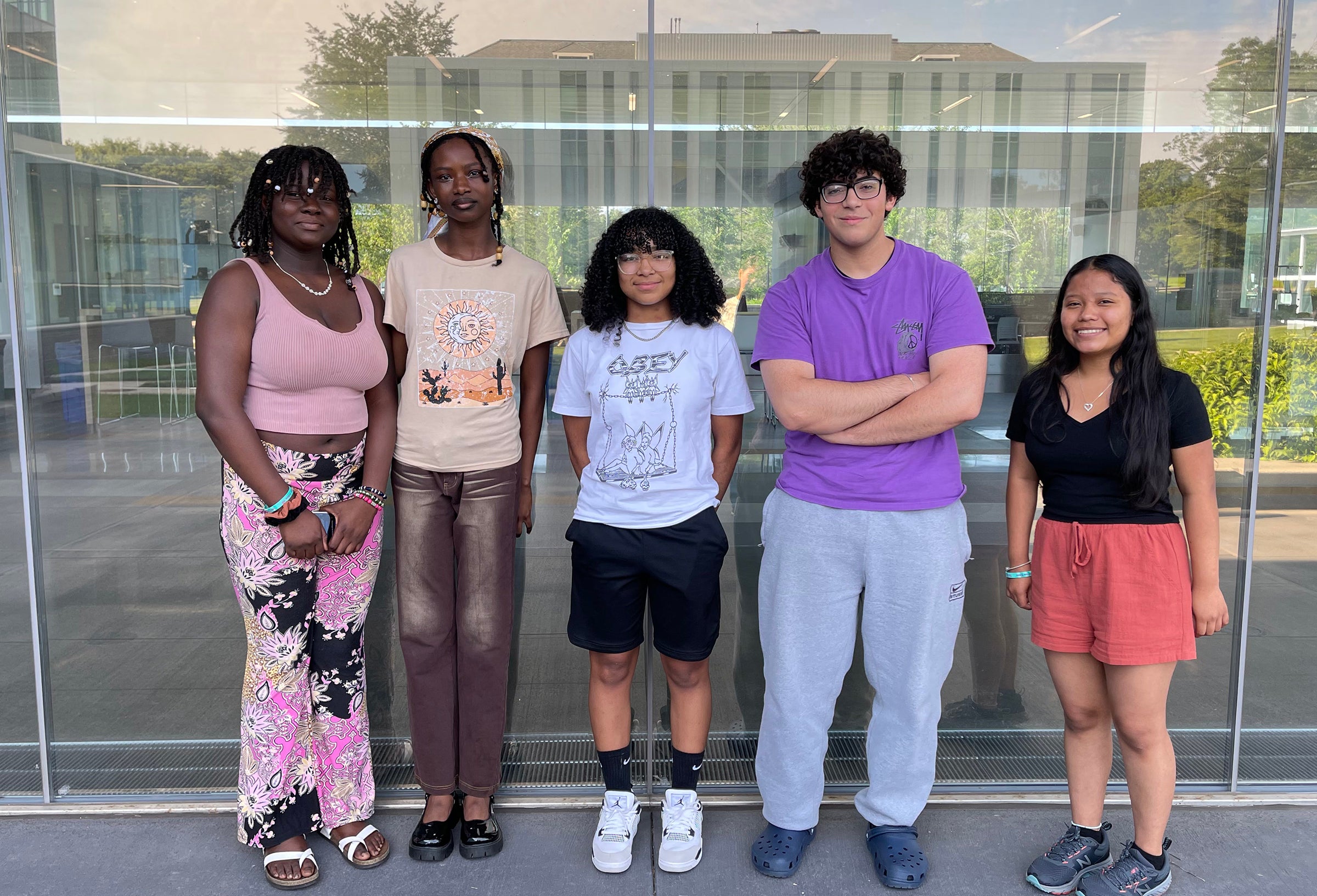KINGSTON, R.I. – Aug. 24, 2023 – University of Rhode Island Associate Professor Samantha Meenach is the recipient of a federal grant that will help students from underrepresented groups pursue studies in undergraduate bioengineering and bioscience research programs and eventually apply to graduate school in these disciplines.
Meenach, the Victor Baxt Endowed Professor who holds a dual appointment in chemical engineering and pharmacy, was awarded the four-year, $1.14 million grant in May to establish the URI ESTEEMED program.
The Enhancing Science, Technology, EnginEering, and Math Educational Diversity (ESTEEMED) program is an initiative of the National Institutes of Health and plans to enroll up to 10 URI students each year. For the upcoming academic year, there are five students in the program.
The program provides first-year students with $10,000 stipends and sophomores with $12,000 stipends. Meenach said students could be enrolled in a variety of URI majors, including biomedical engineering, pharmacy and pharmaceutical sciences, cell and molecular biology, chemistry, and physics, as long as the programs have a connection to treating diseases.
“The focus of this program is to reach students earlier, to get them interested and involved in science so by the time they reach their junior and senior years they are properly equipped and able to begin conducting their own research,” Meenach said. “Ultimately, the goal is to have them enroll and succeed in doctoral programs.”
The URI ESTEEMED program has already enrolled a diverse cohort of first-year students who will be provided resources to gain the skills necessary to pursue advanced education and degree programs in bioengineering and related disciplines.
The goals of URI ESTEEMED are to develop a cohort of scholars who embody critical thinking, engineering design, and fundamental research skills that enable them to develop an early scientific inquiry and research mindset; and to support the development of scholars’ STEM identity and self-efficacy through self-exploration, faculty and near-peer mentoring, academic and professional development advising, academic support and preparation, and positive research experiences.
Scholars participate in the program through their first two years at URI, which include a summer bridge program, academic-year training and research activities, and early exposure to biomedical research. Students will advance through increasingly sophisticated activities to provide them with a chance to engage in mentored bioengineering and biomedical research, develop and hone technical skills, and fully realize their scientific identity. Together with numerous community-building activities, this progressive program will instill students with a sense of personal belonging and engagement within the STEM community and promote participation toward advanced degree programs.
The cohort will remain together through the academic year even though students won’t all be in the same programs. “We will have weekly meetings that will offer different types of academic and professional development,” said Meenach, whose research focus is pulmonary drug delivery.
Meenach believes that the development of scholar identity and self-efficacy will result in improved academic and research performance and deeper engagement with scientific fundamentals. She is working with co-principal investigator Ryan Poling-Skutvik, assistant professor of chemical engineering, who has extensive experience in the LGBTQ+ community and curriculum development.
Primary goals of the program are that: 100% of ESTEEMED Scholars will be prepared to enter an advanced honors program, at least 90% will enroll in an advanced program after their sophomore year, and 90% of scholars will self-identify as a bioengineering or biomedical scientist.
“The idea is to really get students thinking, ‘Yes, I can be a scientist, yes, I can be a researcher.’ If you are not doing research as an undergraduate, then you may not make that jump to graduate school,” Meenach said. “That’s when the action really happens. We know it happens at the undergraduate level at URI because we have seen and written about those successes.”

